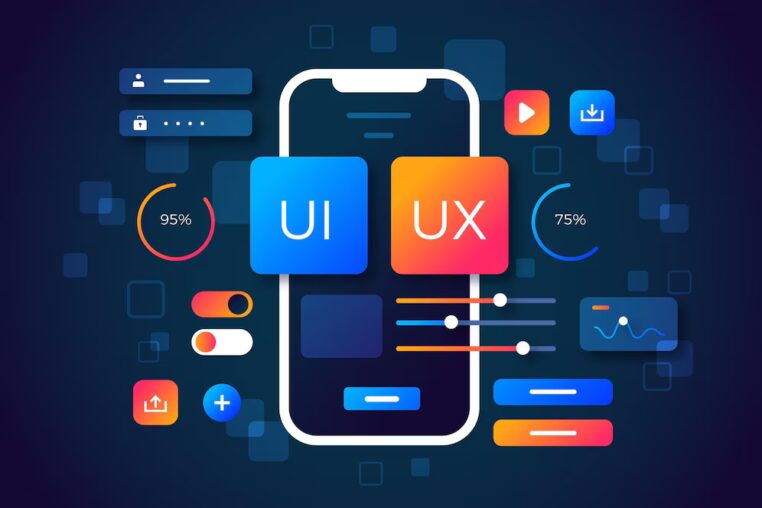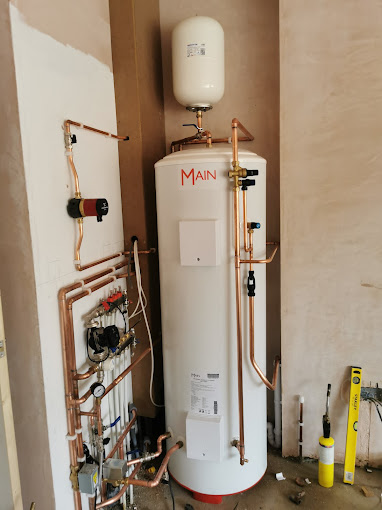In today’s hyper-connected world, mobile applications have become an integral part of business strategies across industries. From on-demand services and e-commerce platforms to healthcare and entertainment, the mobile-first approach is no longer a trend—it’s a necessity. But behind every successful mobile app is a powerful programming language that brings it to life.
In this blog, we’ll explore the best programming languages for mobile app development, helping entrepreneurs, developers, and business owners understand which languages are ideal for specific use cases. We’ll also explore how top companies like Pixel Genesys, a leading web and mobile app development company, help businesses choose the right tech stack for optimal results.
Why Choosing the Right Programming Language Matters
The programming language you choose will impact:
-
Development time and cost
-
App performance and scalability
-
Ease of maintenance and updates
-
Compatibility with iOS or Android platforms
-
Integration with APIs and third-party tools
A professional mobile app development agency considers all these factors before making a recommendation. Let’s now explore the top programming languages that dominate the mobile app development world today.
1. Swift – The Powerhouse for iOS App Development
Swift is Apple’s official language for iOS, macOS, watchOS, and tvOS app development. Introduced in 2014, Swift is fast, safe, and expressive, making it the go-to language for developers providing iOS app development services.
Key Benefits:
-
Optimized for Apple devices
-
Safer code with less room for bugs
-
Open-source and backed by a strong community
-
Easy integration with Objective-C
Ideal For:
-
iOS-only apps
-
High-performance applications
-
Apps requiring a modern codebase
Pixel Genesys utilizes Swift extensively in its iOS app development services, especially when clients need native performance and sleek user interfaces tailored for Apple’s ecosystem.
2. Kotlin – The Preferred Language for Android App Development
Developed by JetBrains and officially supported by Google, Kotlin is the preferred language for Android app development services. It is modern, concise, and fully interoperable with Java.
Key Benefits:
-
Eliminates boilerplate code
-
Reduces app crashes with null-safety
-
Compatible with all Java libraries
-
Improves productivity
Ideal For:
-
Native Android applications
-
Apps with complex backend logic
-
Projects requiring fast prototyping
A professional mobile app development agency like Pixel Genesys often recommends Kotlin when creating high-performance Android applications due to its enhanced code readability and robust support.
3. Java – The Classic Choice for Android Apps
Before Kotlin took center stage, Java was the go-to language for Android app development. While it’s no longer the official language, Java is still widely used and supported by Google.
Key Benefits:
-
Mature and stable ecosystem
-
Vast libraries and tools
-
Extensive developer community
-
Cross-platform capabilities with frameworks like Codename One
Ideal For:
-
Legacy Android apps
-
Cross-platform mobile projects
-
Developers with Java backend experience
Java is still relevant today and is used by agencies offering both Android app development services and cross-platform solutions.
4. Dart – The Backbone of Flutter Framework
Dart is a client-optimized language developed by Google and used in the Flutter framework for building natively compiled apps across mobile, web, and desktop from a single codebase.
Key Benefits:
-
Single codebase for iOS and Android
-
Hot reload for faster testing
-
Custom UI designs with widget libraries
-
Strong performance and native compilation
Ideal For:
-
Startups wanting to reduce time-to-market
-
Apps with consistent UI on Android and iOS
-
MVP (Minimum Viable Product) launches
At Pixel Genesys, Dart and Flutter are highly recommended when clients need cost-effective and visually consistent applications on both major mobile platforms.
5. React Native (JavaScript) – For Hybrid App Development
React Native is a popular open-source framework created by Facebook, allowing developers to use JavaScript and React to build mobile apps.
Key Benefits:
-
One codebase for Android and iOS
-
Large developer community
-
Reusable UI components
-
Access to native device features
Ideal For:
-
Apps with moderate to complex UI
-
Budget-conscious projects
-
Quick prototyping and MVPs
When clients at Pixel Genesys are looking to build hybrid applications that retain near-native performance, React Native is a top choice, especially for SMEs and startups.
6. Objective-C – The Legacy Language for iOS
Before Swift, Objective-C was Apple’s primary language. While it’s now considered outdated for new projects, it’s still necessary for maintaining or upgrading older apps.
Key Benefits:
-
Mature and stable
-
Extensive documentation
-
Compatible with Swift
Ideal For:
-
Updating legacy iOS applications
-
Integrating older Apple APIs
-
Long-term enterprise projects
Agencies offering professional iOS app development services still maintain a working knowledge of Objective-C to serve clients with older codebases.
7. C# (C-Sharp) – For Xamarin App Development
C#, developed by Microsoft, is commonly used with the Xamarin framework for building cross-platform mobile applications.
Key Benefits:
-
Native performance
-
Shared codebase for Android, iOS, and Windows
-
Backed by Microsoft
Ideal For:
-
Enterprise-grade applications
-
Businesses already invested in Microsoft technologies
-
Cross-platform projects with high functionality
Though Xamarin is not as popular as Flutter or React Native, Pixel Genesys recommends C# for clients who prefer Microsoft ecosystems and need deep integration with existing .NET services.
8. Python – Best for Backend and Prototypes
While Python is not a primary language for native mobile app development, it is widely used for prototyping and backend development.
Key Benefits:
-
Fast development cycles
-
Rich libraries (e.g., Kivy, BeeWare for UI)
-
Great for machine learning and AI-based apps
Ideal For:
-
Backend logic
-
Data-heavy apps
-
MVPs with AI/ML components
Top mobile app development agencies often use Python alongside a mobile front-end stack to power features like analytics, authentication, or recommendation engines.
9. Rust – A Rising Star in Mobile Performance
Rust is gaining traction for its memory safety and performance. While still niche, it’s being experimented with in mobile app contexts.
Key Benefits:
-
Memory-safe and fast
-
Excellent for system-level tasks
-
Compatible with C and C++
Ideal For:
-
Security-critical apps
-
Game development
-
High-performance modules in hybrid apps
Rust is not mainstream yet in mobile development, but innovative companies like Pixel Genesys are exploring its potential in future mobile solutions.
Cross-Platform vs. Native: Choosing the Right Approach
Choosing between cross-platform and native development depends on your project’s goals, timeline, and budget. Here’s how a seasoned mobile app development agency helps clients decide:
| Factor | Native (Swift/Kotlin) | Cross-Platform (Flutter/React Native) |
|---|---|---|
| Performance | Superior | Near-native |
| Development Speed | Slower | Faster (single codebase) |
| Cost | Higher | More affordable |
| User Experience | Best (platform-specific UI) | Good, with customizations |
| Maintenance | Separate codebases | Easier with one codebase |
For high-end apps like banking or health monitoring, native is ideal. For startups or SMEs, cross-platform is often the smarter choice—balancing performance with cost-efficiency.
Why Work with a Professional Mobile App Development Agency?
Selecting the right programming language is just one part of the equation. A successful app also requires expert planning, design, testing, and deployment. This is where hiring a mobile app development agency becomes essential.
Top agencies like Pixel Genesys offer:
-
Tailored consultations to choose the best language and framework
-
Custom iOS app development services and Android app development services
-
Scalable backend architecture
-
Ongoing support and updates
Pixel Genesys is not only known for technical excellence but also for its client-centric approach. Their team stays updated with the latest technologies and frameworks, making them a go-to partner for businesses across healthcare, education, fintech, and eCommerce sectors.
Final Thoughts
Mobile app development is a rapidly changing field, and the right programming language can make or break your project. Whether you’re developing a high-performance native app or a cost-effective cross-platform solution, choosing the correct language ensures long-term maintainability, superior performance, and user satisfaction.
To recap, here are the best programming languages for mobile app development:
-
Swift and Objective-C for iOS
-
Kotlin and Java for Android
-
Dart, React Native (JavaScript), and C# for cross-platform
-
Python for backend and AI-powered features
-
Rust for performance-critical modules
If you’re uncertain which path to take, partnering with a professional mobile app development agency like Pixel Genesys can provide the expertise needed to align your goals with the best technological choices.
Are you ready to build the next breakthrough mobile app?
Let Pixel Genesys, a top web and mobile app development company, help you turn your vision into a user-friendly, high-performing digital product. Whether you need iOS app development services, Android app development services, or a cross-platform solution—we’ve got you covered.




